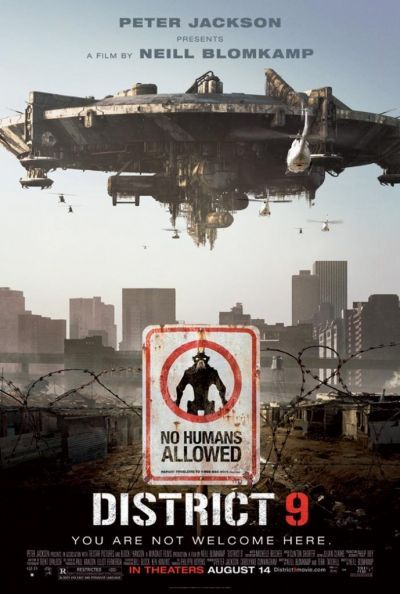Controversies big and small dog Oscars contenders

Anti-war, anti-imperialist, anti-semitic, anti-social, racist: this year's Oscars best picture contenders have faced a barrage of criticism from groups and commentators eager to exploit the media frenzy surrounding the Academy Awards to draw attention to their causes.
While science-fiction blockbuster "Avatar" and Iraq war drama "The Hurt Locker" have been battling criticism on a number of fronts, controversies have also attached themselves to best picture nominees "Precious," "District 9," "An Education," "The Blind Side" and "A Serious Man."
The environmental, anti-war, anti-imperialist themes of James Cameron's "Avatar," which tells the story of peace-loving blue aliens defending their home from war-mongering American soldiers, has infuriated conservatives.
Columnist John Podhoretz of the Weekly Standard has branded the film - the highest-grossing film of all time with more than two billion dollars since its release - as "anti-American."
"The conclusion does ask the audience to root for the defeat of American soldiers at the hands of an insurgency," Podhoretz wrote. "So it is a deep expression of anti-Americanism kind of."
But public health activists have also taken a pot-shot at "Avatar," angry at scenes in the film where the character played by Sigourney Weaver is seen puffing on a cigarette.
"There is very, very strong epidemiological evidence that the more smoking kids and young adults see in movie, the more likely they are to smoke," Stanton Glantz, professor of Medicine and Director of the Center for Tobacco Control Research and Education, told AFP.
"Avatar would have been just as good a movie without Sigourney Weaver smoking cigarettes in the beginning.
"To say that you needed to show a scientist in a spaceship smoking cigarettes in the year 2154 in order to be realistic in a movie which was essentially animated, it's ridiculous."

Watch Apple TV+ free for 7 day
New subscribers only. £9.99/mo. after free trial. Plan auto-renews until cancelled.
ADVERTISEMENT. If you sign up to this service we will earn commission. This revenue helps to fund journalism across The Independent.

Watch Apple TV+ free for 7 day
New subscribers only. £9.99/mo. after free trial. Plan auto-renews until cancelled.
ADVERTISEMENT. If you sign up to this service we will earn commission. This revenue helps to fund journalism across The Independent.
Cameron rejected the charge however saying he wanted Weaver's character to be "off-putting and even unpleasant." "She's not meant to be an aspirational role model to teenagers," he said.
Meanwhile "The Hurt Locker," a tense drama about the activities of a bomb disposal unit in Iraq, has faced a barrage of late criticism from veterans who have complained it inaccurately portrays their profession.
"The depiction of our community in this film is disrespectful," said Paul Rieckhoff, executive director of the Iraq and Afghanistan Veterans of America. "We are not cowboys. We are not reckless. We are professionals."
Science-fiction nominee "District 9" meanwhile infuriated the Nigerian government for its portrayal of murderous Nigerian criminal gangs operating in the Soweto-like townships where the film is set.
"Why do they want to denigrate Nigerians as criminals, cannibals and prostitutes who sleep with extra-terrestrial animals," said Nigeria's Minister of Information Dora Akunyili. The film was banned in Nigeria, which demanded an apology from studio Sony.
Other controversies surrounding best picture nominees are more surprising. Independent drama "Precious" was accused of being "brazenly racist" by New York Film Critics Circle chairman Armond White for its depiction of an obese, illiterate, sexually abused black teenager from Harlem.
The film's African-American director Lee Daniels admitted to being baffled by the criticism. "These are people that I know," he said of the film's characters. "My movie is the truth. It's absolutely colorless."
Equally unexpected was criticism of British nominee "An Education," where a villainous Jewish character was compared to "the parasitical Jew of Nazi propaganda films" by a critic in the Jewish Journal of Greater Los Angeles.
The timing of the controversies during Oscar seasons invites inevitable speculation that some are part of dirty tricks conspiracy.
However Fredell Pogodin, a Los Angeles public relations executive who has worked on Oscar campaigns for foreign language and documentary films, says the rash of headlines are the result of a compliant media as much as timing.
"I think journalists are always looking for something to write. You're always looking for some new angle," Pogodin told AFP.
"That said, if I have a complaint or I am an interested party in something, this is a good time of year to get my word out. I'm not saying that they don't have legitimate complaints.
"But I do know that at this time of year the media will be responsive."
Join our commenting forum
Join thought-provoking conversations, follow other Independent readers and see their replies
Comments